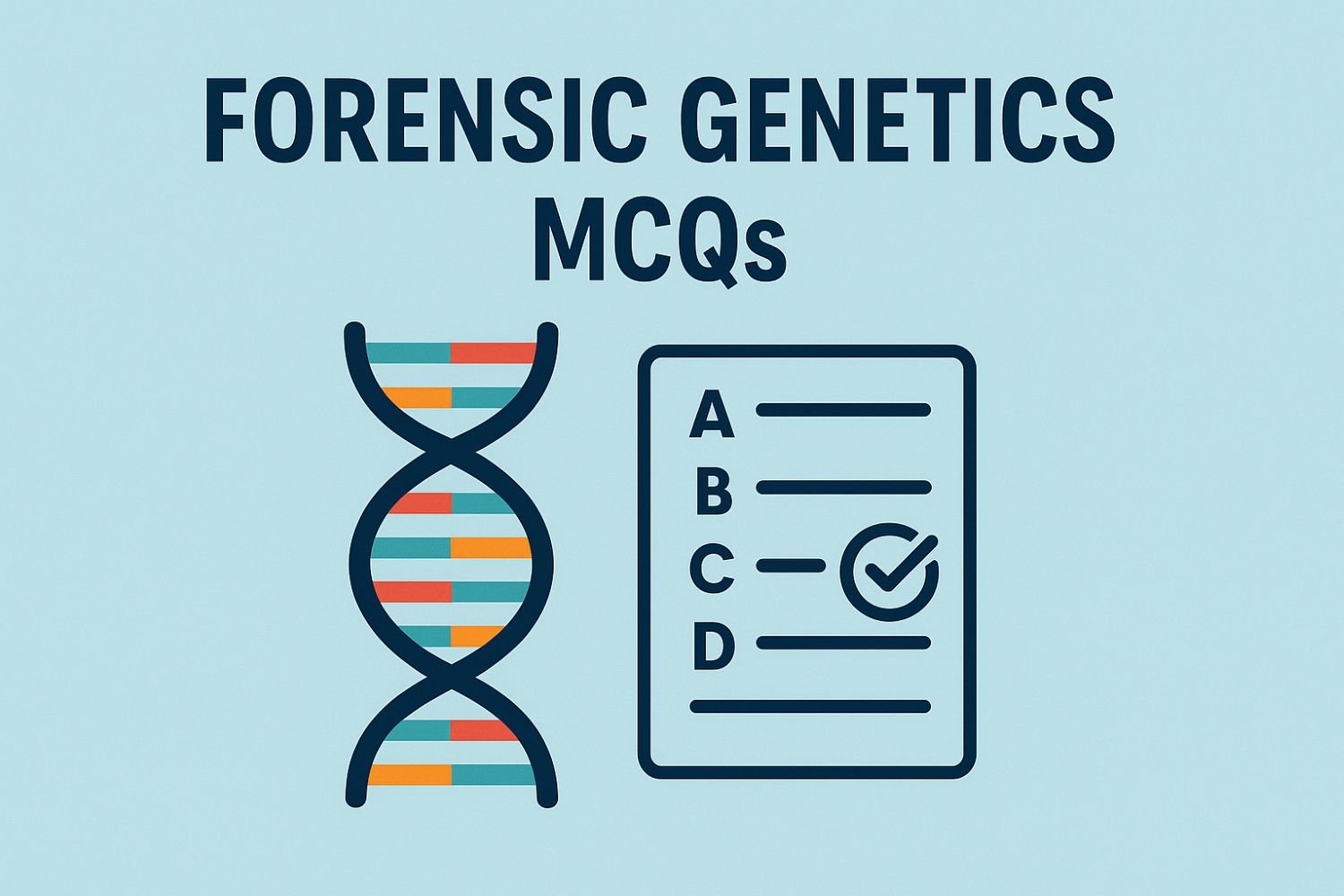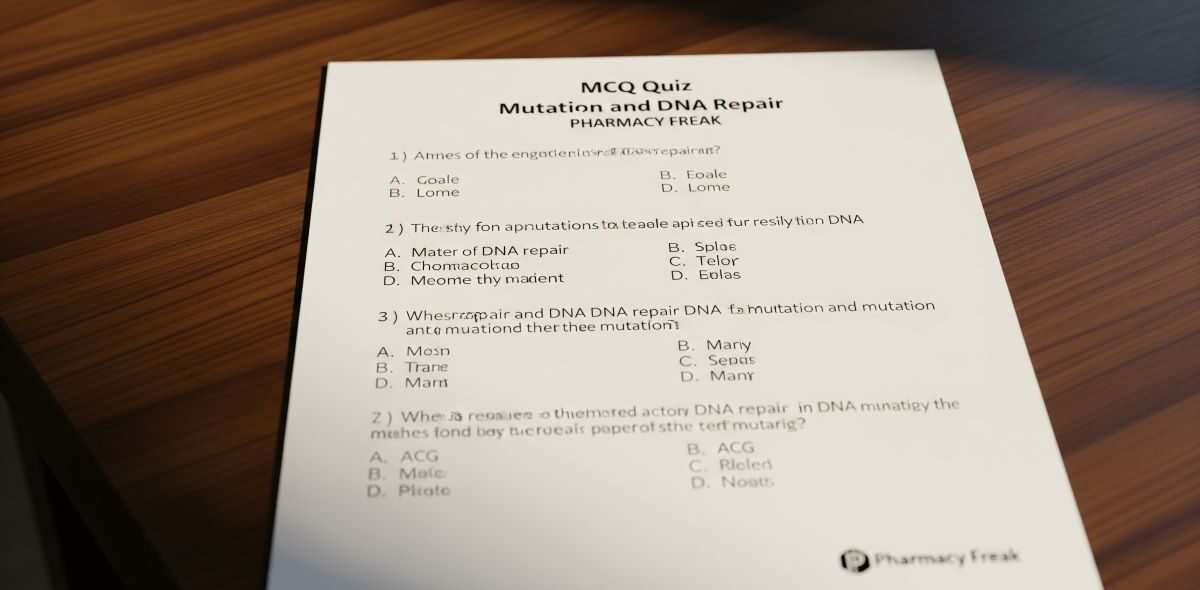

Excel at Forensic Genetics MCQs
Forensic genetics applies molecular biology to solving legal and criminal cases. These MCQs test your ability to understand DNA analysis, genetic markers, and laboratory methods used in forensic science. Mastering this material strengthens both your exam performance and your real-world application skills.
What’s Covered in Forensic Genetics?
This subject explores the genetic principles and lab techniques used to identify individuals, establish biological relationships, and support criminal investigations. You’ll review DNA profiling, population genetics, and the ethical issues surrounding forensic applications.
What Will Forensic Genetics MCQs Test?
Core Focus Areas
DNA Profiling Methods:
Expect questions on STRs (short tandem repeats), SNPs (single nucleotide polymorphisms), and mitochondrial DNA analysis.Sample Collection and Processing:
MCQs may cover proper collection, preservation, and extraction of forensic samples like blood, hair, and saliva.PCR and Amplification Techniques:
You’ll see questions about how DNA is amplified and analyzed for forensic comparison.Population Genetics:
Expect questions on allele frequencies, Hardy-Weinberg equilibrium, and calculating match probabilities.Kinship and Identity Testing:
Some MCQs focus on paternity testing, familial searching, and missing persons identification.Ethical and Legal Issues:
Be ready for questions on privacy, consent, database use, and admissibility of forensic evidence in court.
Why These MCQs Matter
Here’s the thing: forensic genetics is where science meets the justice system. These MCQs prepare you to think critically about DNA evidence, apply population genetics, and understand both the power and limitations of genetic identification.
Tips for Success with Forensic Genetics MCQs
1. Know Your Markers:
Be confident in identifying STRs, SNPs, and mitochondrial DNA applications.
2. Pay Attention to Accuracy:
Forensic work demands precision—expect MCQs where one detail changes the outcome.
3. Apply Probability Thinking:
Many questions require interpreting allele frequencies and statistical match values.
4. Understand Lab Techniques:
Be ready for direct questions on PCR, electrophoresis, and sequencing methods.
5. Remember the Ethics:
Always choose responses that prioritize ethical handling of genetic information.
Building Your Forensic Genetics Knowledge
Mastering Forensic Genetics MCQs equips you with the knowledge to apply molecular biology in high-stakes legal and investigative contexts. Every question is a step toward understanding how genetics impacts justice and society.



